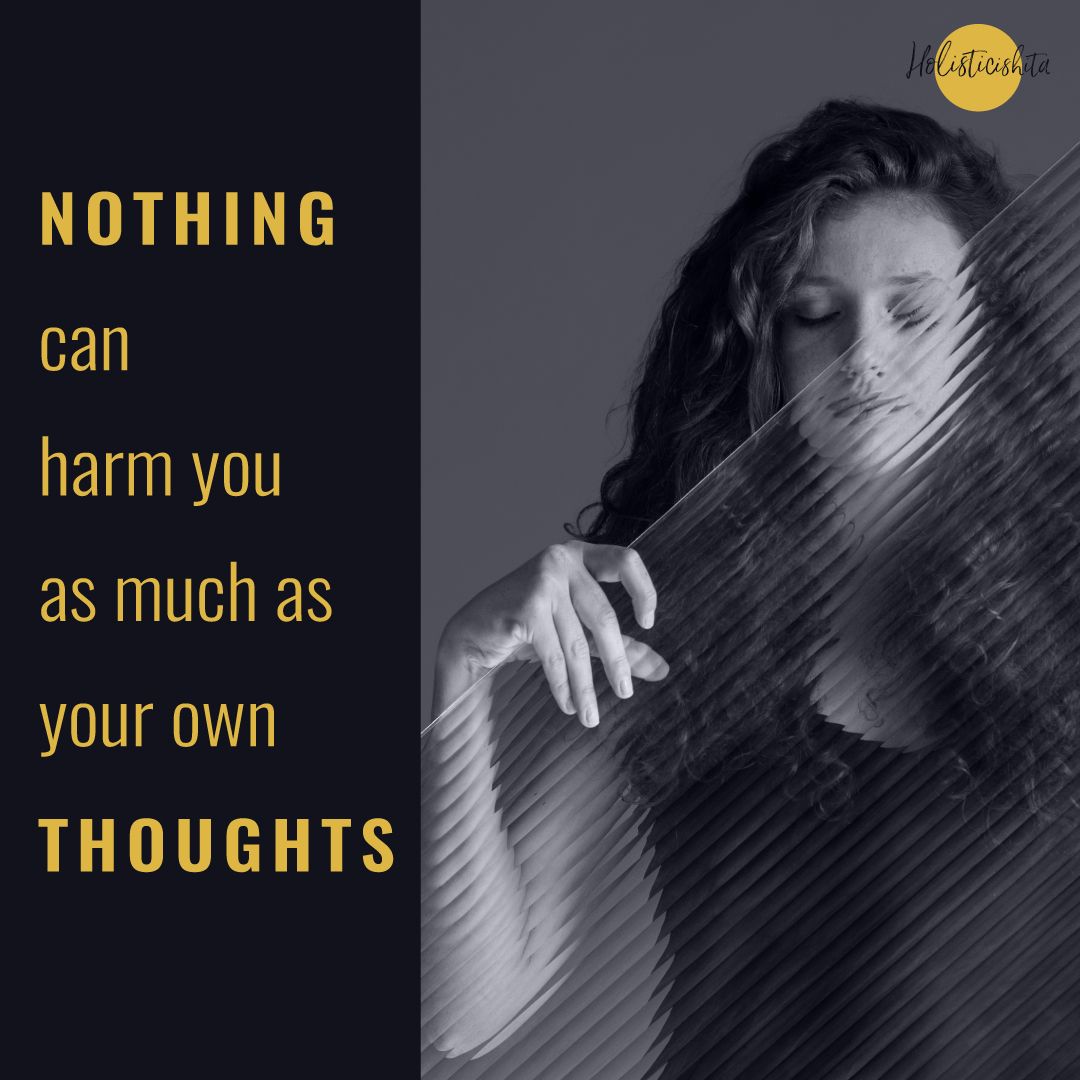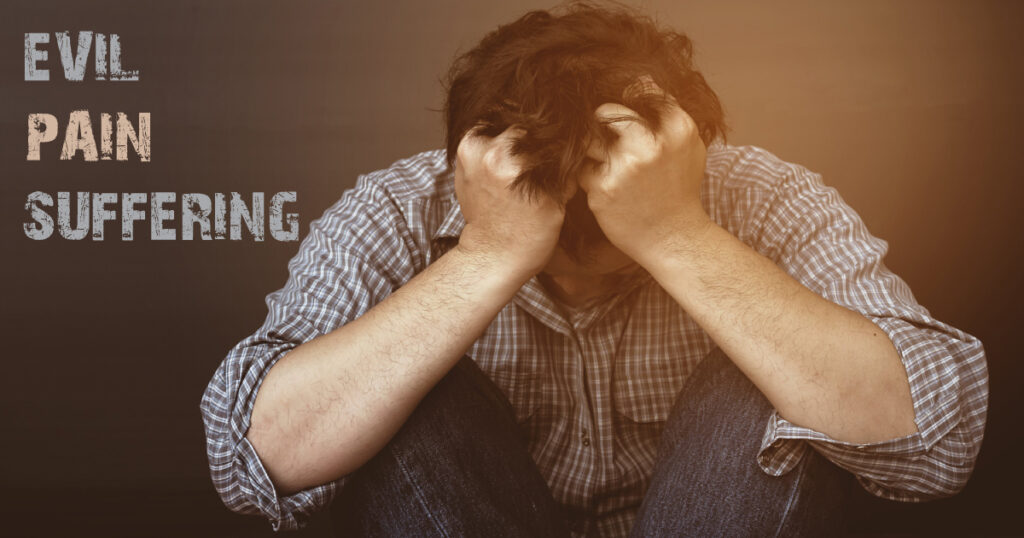Concept of Suffering in Buddhism
Suffering in Buddhism is like when you feel sad, hurt, or not completely happy. It’s a big deal in Buddhism because it helps people learn about life. Buddhists believe that if we understand why we feel unhappy or hurt, we can become better and find more happiness. So, they say that learning about suffering is like a special key to becoming a really good and happy person.
Understanding Suffering in Buddhism
Sometimes life can be tough and make us feel sad, hurt, or not completely happy. It’s like saying, “Hey, it’s normal to have some bad days or feel not-so-great sometimes.”
Buddhists believe that understanding this truth helps us learn how to deal with those tough times and find more happiness in the long run. It’s like knowing that rainy days happen, but it can also make us appreciate the sunny days even more!
Types Of Suffering that We Feel
There are different kinds of suffering that people can feel.
Physical suffering: This is when our bodies hurt or feel sick. Like when you have a tummy ache or a headache, that’s physical suffering.
Mental suffering: This is when we feel sad, worried, or stressed inside our minds. It’s like having a lot of thoughts and feelings that make us unhappy.
Existential suffering: This one is a bit tricky. It’s when we wonder about big questions like “Why are we here?” or “What’s the meaning of life?” Sometimes, thinking about these things can make us feel a bit lost or confused.
In Buddhism, these topics are discussed to help people understand and try to find ways to feel better.
The Nature of Unwholesome Actions
In Buddhism, unwholesome actions are things we do that are not very nice or good. These actions can hurt others or ourselves, like being mean to someone or telling lies.
Buddhists believe that unwholesome actions make our hearts and minds feel not so good and can bring more suffering.
So, they encourage people to do kind and good things instead to make their hearts and minds happier and peaceful. It’s like choosing to be a good friend and not a mean one.

Unwholesome Actions Explained
Unwholesome actions in Buddhism are like the not-so-nice things we can do. Some examples are:
Greed: Greed is when we want more and more things. It mainly talks about materialistic things. It can make us selfish and not care about other people’s feelings.
Hatred: Hatred is when we feel really angry or mad at someone, and we might want to hurt them or say mean things. It’s not good because it can make others feel sad and create problems.
Ignorance: Ignorance means not knowing or understanding things properly. It’s when we don’t try to learn or listen to others, and it can lead to misunderstandings and mistakes.
Buddhists teach that avoiding these unwholesome actions and choosing kindness and understanding instead can make our lives better and happier. It’s like being a good friend and making the world a nicer place.
Unwholesome Actions lead to Suffering
Unwholesome actions, like greed, hatred, and ignorance, can cause suffering in two important ways:
Personally and in the whole society.
When we do unkind things or hurt others, it can make us feel bad inside, like a heavy weight on our hearts. This is personal suffering.
But it doesn’t stop there. When lots of people do unwholesome actions, it can make the whole world a more difficult and unhappy place to live. It’s like when many people are unkind to each other, it creates a lot of problems and sadness in our communities and the world.
So, avoiding unwholesome actions helps not only us but also everyone around us to have a happier and more peaceful life.
The Law of Karma
In Buddhism, karma is like a special rule that says, “Whatever you do, good or bad, has consequences.” It’s a bit like when you plant a seed, and it grows into a tree – if you plant a good seed, you get a good tree, and if you plant a bad seed, you get a bad tree.
Similarly, when we do kind and good things, it brings happiness and good things back to us. But if we do unkind or bad things, it can lead to unhappiness and not-so-good things in our lives.
So, karma reminds us that our actions are like seeds, and they can grow into something good or not so good depending on what we do.
Buddhism says that the things we do, whether good or bad, shape the quality of our lives. It’s a bit like a boomerang – when we throw it, it comes back to us.
So, if we do kind and good things, it tends to bring happiness and positive experiences into our lives. But if we do unkind or bad things, it can lead to suffering and challenges.
It’s a way of teaching us to be responsible for our actions and make choices that lead to a happier and more peaceful life.
Suffering as the Result of Evil Deeds
There is a strong connection between unwholesome actions and suffering. When we engage in unkind or harmful actions, it’s like planting seeds of suffering in our lives. These actions can create negative consequences, both immediately and in the future, leading to sadness and difficulties.
By understanding this connection, Buddhists aim to encourage people to choose kindness, compassion, and good deeds as a way to reduce suffering in their own lives and in the world.
It’s about making choices that bring more joy and less pain to ourselves and those around us.
Liberation from Suffering
Recognizing the relationship between evil deeds and suffering is crucial for personal growth and spiritual development in Buddhism.
It serves as a powerful motivator because it shows us that we have the ability to shape our own lives. By understanding that unwholesome actions lead to suffering, we are encouraged to make better choices and cultivate positive qualities like kindness, generosity, and wisdom.
This recognition becomes a driving force for self-improvement, guiding us towards a more compassionate and enlightened way of living.
It’s like a roadmap that helps us navigate life’s challenges and strive for greater inner peace and happiness while contributing positively to the world around us.
Practical Applications in Daily Life
Mindfulness: Pay attention to your thoughts and actions. Before you act, pause and consider whether it’s a kind and positive choice.
Compassion: Cultivate empathy for others’ feelings and suffering. Treat them how you’d like to be treated, with kindness and respect.
Generosity: Share with others, whether it’s your time, resources, or a simple smile. Acts of giving create positive karma.
Moral Precepts: Follow ethical guidelines like not lying, stealing, or hurting others. These principles provide a clear path to wholesome actions.
Meditation: Regular meditation can help you develop self-awareness and control over your thoughts and actions.
Learning: Study Buddhist teachings and wisdom to gain a deeper understanding of how to lead a virtuous life.
By integrating these practices into our daily routine, we can gradually reduce unwholesome actions and promote a more compassionate and fulfilling way of life.
Benefits of Mindfulness and Ethical Conduct in Reducing Suffering
Mindfulness and ethical conduct offer significant benefits in reducing suffering.
Mindfulness helps us become more aware of our thoughts and actions, allowing us to catch unwholesome behaviors before they escalate.
By practicing ethical conduct, such as telling the truth and being kind, we create positive karmic outcomes, leading to a life with fewer regrets and conflicts.
These practices also enhance our emotional well-being, as we develop greater self-control and empathy for others.
Ultimately, by combining mindfulness and ethical conduct, we pave the way for a more peaceful, harmonious, and fulfilling existence, reducing the suffering we and others experience.
Takeaway
Remember, suffering isn’t something we’re stuck with forever. It’s like a tough puzzle, and we have the pieces to make it better.
By doing good and kind things, like helping others and being truthful, we can change the story of our lives.
It’s like turning a gloomy day into a sunny one.
So, always remember, we have the power to make our lives happier by making good choices and being kind to others!
Share this post: on Twitter on Facebook

